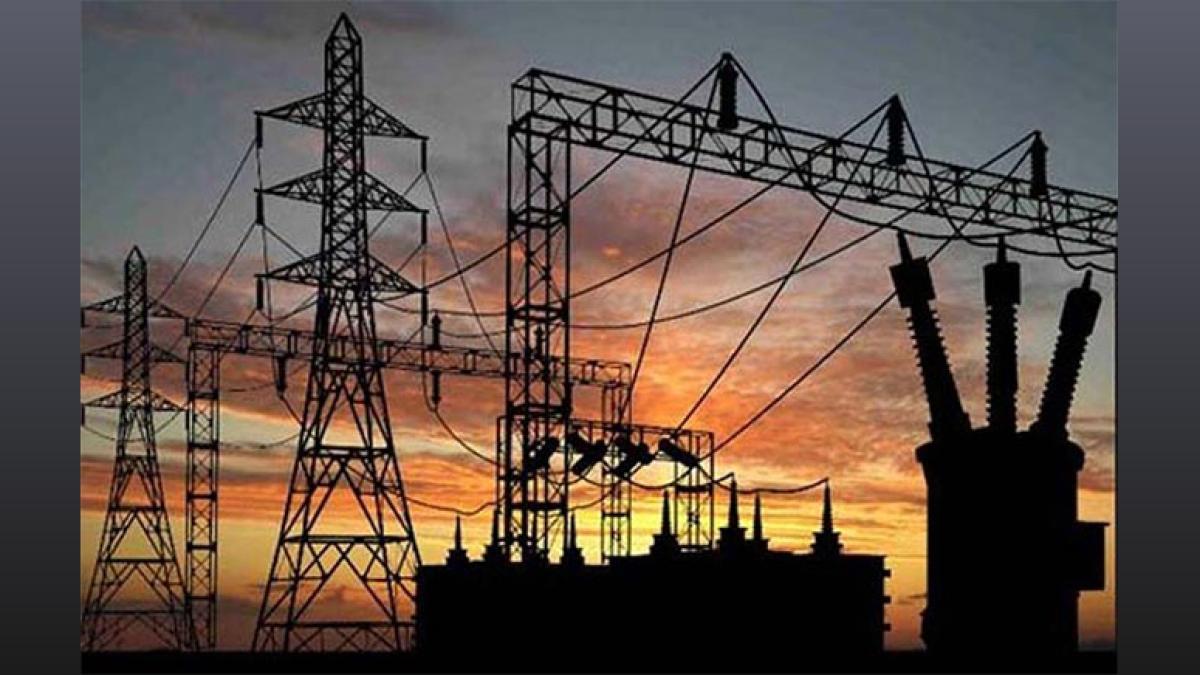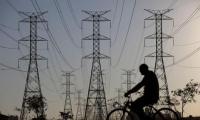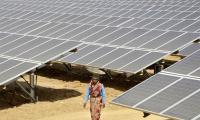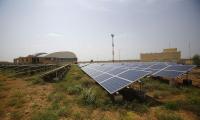Pakistan Terminates IPP Contracts: Relief for Consumers
Pakistan cancels contracts with 5 IPPs, aiming to reduce electricity prices and save consumers Rs 60 billion annually. Learn about the impact on power sector and the government's efforts to address electricity costs.

Islamabad, Oct 10 (PTI) Pakistan's Prime Minister Shehbaz Sharif on Thursday said that contracts with five Independent Power Producers (IPPs) have been terminated to help tackle intractable electricity prices in the country, providing consumers with a relief of Rs 60 billion annually.
Pakistan has been paying capacity payments to several IPPs given agreements that forced the country to make the payment even if it was not buying electricity from those companies.
It led to the accumulation of power debt and the skyrocketing of electricity prices in the country as the government was forced to increase taxes to meet payment obligations.
Lately, pressure mounted on the government to tackle the issue of IPPs, and after negotiations spanning several months, Prime Minister Sharif informed the cabinet meeting that five IPPs agreed to terminate contracts after mutual consent of the owners of the companies, reported Radio Pakistan.
He said only the outstanding amounts owed to these IPPs will be paid now, without any interest.
Sharif highlighted that termination of these contracts would save power consumers about Rs 60 billion and provide a benefit of around Rs 411 billion to the national exchequer.
Asserting that this was the outcome of the strenuous collective efforts of the government's entire team, the Prime Minister also recognised the inputs and support of the allied parties.
Separately, Minister for Power Awais Leghari said at a press conference that the agreement with five IPPs was just the beginning and deals would be made with other companies, including the Chinese IPPs to elevate the masses.
Starting in 1994, successive Pakistani governments offered lucrative deals to investors to set up power-producing companies to tackle power shortages.
There are around 90 IPPs in the country, according to the Central Power Purchasing Agency, a government entity.
With time, the power demand decreased, but the government was forced to make capacity payments, which meant that it paid regularly to an IPP as per its generation capacity, even without buying electricity.
According to the Pakistan Economic Survey 202324, the installed electricity generation capacity reached 42,131 MW in March 2024. For FY2024, the total electricity generation stood at 92,091 GWh against a demand of 68,559 GWh for the same period.
Government entities control a 52 per cent stake in the power sector, translating to 23,860 megawatts, while the IPPs in the private sector own a significant 48 per cent share, accounting for 22,043 megawatts of the total capacity, according to an article in the Business Recorders newspaper. It claimed that the installed capacity was 45,885 MW.
Former energy minister Gohar Ejaz said in July this year that the consumers paid Rs 1.93 trillion in capacity payments to IPPs during the previous fiscal year, including Rs 46 billion to two producers with zero power generation and Rs 370 billion to three plants for generating power at 15 per cent load factors.
As the government announced that relief was on the way for the masses, it was not exactly clear how much impact the termination of the contract with five IPPs would have in terms of reduction in the power charges.
Hafiz Naeem, head of the right-wing Jamaat-e-Islami which protested in Rawalpindi for several days against the prices of electricity, demanded more agreements with the IPPs to give real relief to the people.
Pakistan has been paying capacity payments to several IPPs given agreements that forced the country to make the payment even if it was not buying electricity from those companies.
It led to the accumulation of power debt and the skyrocketing of electricity prices in the country as the government was forced to increase taxes to meet payment obligations.
Lately, pressure mounted on the government to tackle the issue of IPPs, and after negotiations spanning several months, Prime Minister Sharif informed the cabinet meeting that five IPPs agreed to terminate contracts after mutual consent of the owners of the companies, reported Radio Pakistan.
He said only the outstanding amounts owed to these IPPs will be paid now, without any interest.
Sharif highlighted that termination of these contracts would save power consumers about Rs 60 billion and provide a benefit of around Rs 411 billion to the national exchequer.
Asserting that this was the outcome of the strenuous collective efforts of the government's entire team, the Prime Minister also recognised the inputs and support of the allied parties.
Separately, Minister for Power Awais Leghari said at a press conference that the agreement with five IPPs was just the beginning and deals would be made with other companies, including the Chinese IPPs to elevate the masses.
Starting in 1994, successive Pakistani governments offered lucrative deals to investors to set up power-producing companies to tackle power shortages.
There are around 90 IPPs in the country, according to the Central Power Purchasing Agency, a government entity.
With time, the power demand decreased, but the government was forced to make capacity payments, which meant that it paid regularly to an IPP as per its generation capacity, even without buying electricity.
According to the Pakistan Economic Survey 202324, the installed electricity generation capacity reached 42,131 MW in March 2024. For FY2024, the total electricity generation stood at 92,091 GWh against a demand of 68,559 GWh for the same period.
Government entities control a 52 per cent stake in the power sector, translating to 23,860 megawatts, while the IPPs in the private sector own a significant 48 per cent share, accounting for 22,043 megawatts of the total capacity, according to an article in the Business Recorders newspaper. It claimed that the installed capacity was 45,885 MW.
Former energy minister Gohar Ejaz said in July this year that the consumers paid Rs 1.93 trillion in capacity payments to IPPs during the previous fiscal year, including Rs 46 billion to two producers with zero power generation and Rs 370 billion to three plants for generating power at 15 per cent load factors.
As the government announced that relief was on the way for the masses, it was not exactly clear how much impact the termination of the contract with five IPPs would have in terms of reduction in the power charges.
Hafiz Naeem, head of the right-wing Jamaat-e-Islami which protested in Rawalpindi for several days against the prices of electricity, demanded more agreements with the IPPs to give real relief to the people.
You May Like To Read
TODAY'S MOST TRADED COMPANIES
- Company Name
- Price
- Volume
- Vodafone-Idea-L
- 11.65 (+ 3.56)
- 106772451
- Alstone-Textiles
- 0.28 ( -3.45)
- 44187760
- Mangalam-Industrial
- 0.88 ( -2.22)
- 39177573
- Sunshine-Capital
- 0.27 (+ 3.85)
- 35956340
- GMR-Airports
- 104.40 (+ 6.37)
- 30453005





